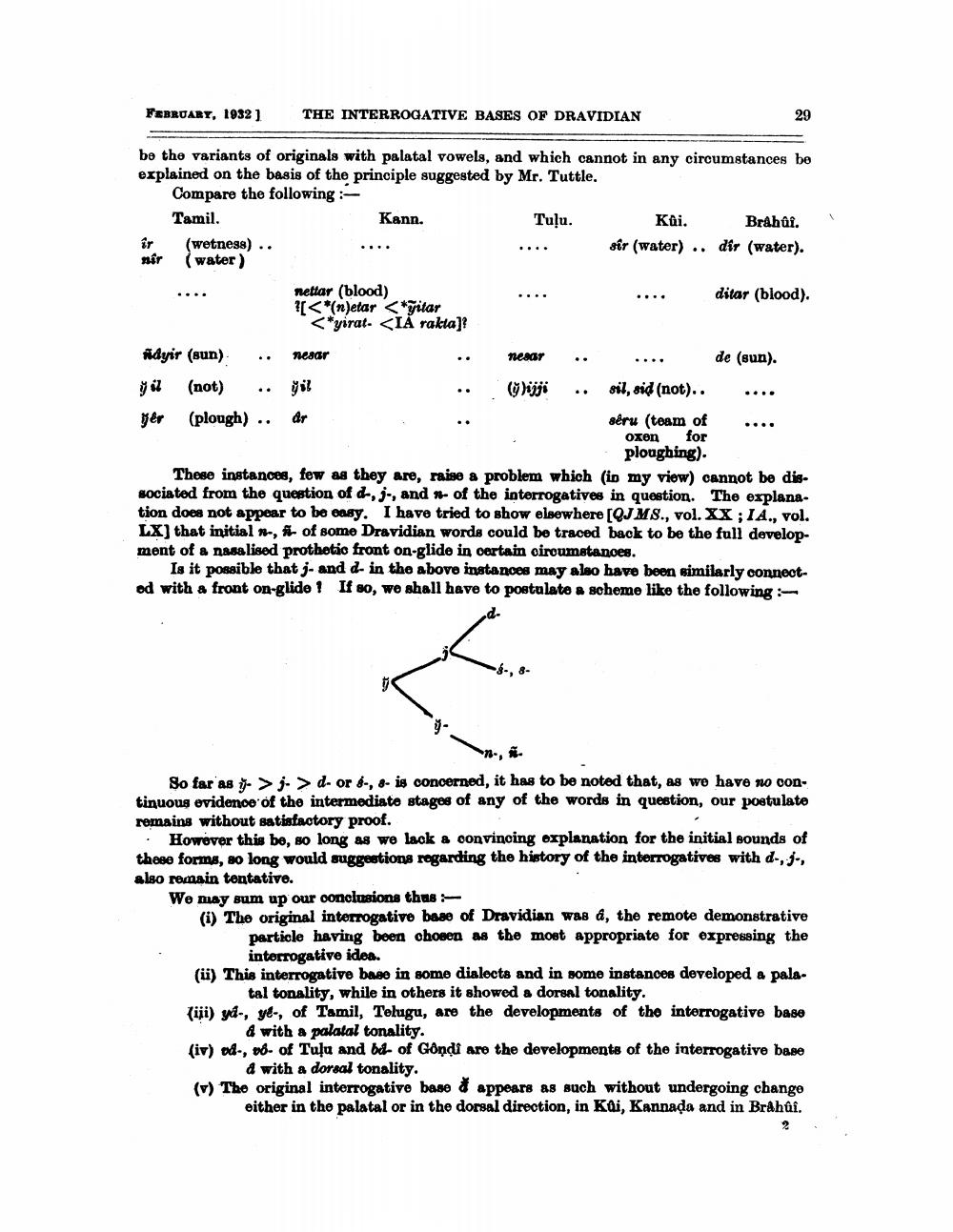________________
FEBRUARY, 1932)
THE INTERROGATIVE BASES OF DRAVIDIAN
29
be the variants of originals with palatal vowels, and which cannot in any circumstances be explained on the basis of the principle suggested by Mr. Tuttle.
Compare the following Tamil.
Kann.
Tuļu.
Kai.
Brahoi. ir (wetness)..
sir (water) .. dir (water). nir water) nettar (blood)
ditar (blood). ?[<*(n)etar <*yitar
<*yirat- <IX rakta)? hdyir (sun). .. nesar
nesar
de (sun). jä (not) ..
.. Ghijji .. sil, sid (not).. jer (plough) .. dr
séru (team of
oxen for
ploughing). These instances, few as they are, raise a problem which (in my view) cannot be dissociated from the question of d-, j, and of the interrogatives in question. The explanation does not appear to be easy. I have tried to show elsewhere [QJMS., vol. XX;IA., vol. LX) that initial , f of some Dravidian words could be traced back to be the full developmont of a nasalised prothotio front on-glide in certain circumstances.
Is it possible that j- and d- in the above instances may also have been similarly connectod with a front on-glide 1 If so, we shall have to postulate a scheme like the following:
So far as 7->j.>d- or -, - is concerned, it has to be noted that, as we have no oontinuous evidence of the intermediate stages of any of the words in question, our postulate remains without satisfactory proof.
• Howover this be, so long as we lack & convincing explanation for the initial sounds of these forms, ao long would suggestions regarding the history of the interrogatives with d-, -. also remain tontative. Wo may sum up our conclusions thus (i) The original interrogative base of Dravidian was d, the remote demonstrative
particle having been chosen as the most appropriate for expressing the
interrogative idea (ii) This interrogative base in some dialects and in some instances developed a pala
tal tonality, while in others it showed a dorsal tonality. (iii) wd, you, of Tamil, Telugu, are the developments of the interrogative base
& with a palatal tonality. (iv) ad-, no. of Tuļu and bel- of Gôndi are the developments of the interrogative base
d with a dorsal tonality. (v) The original interrogative base & appears as such without undergoing change
either in the palatal or in the dorsal direction, in Kai, Kannada and in Brahui.




